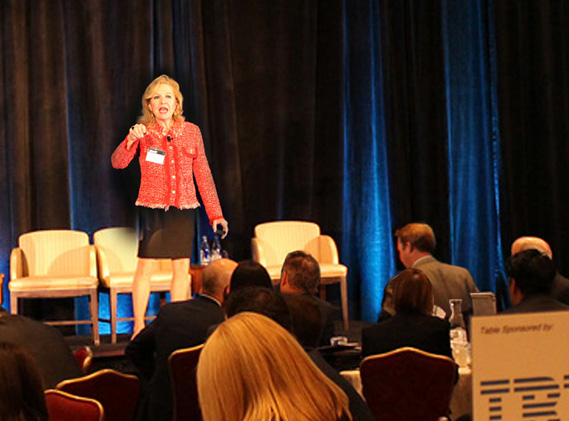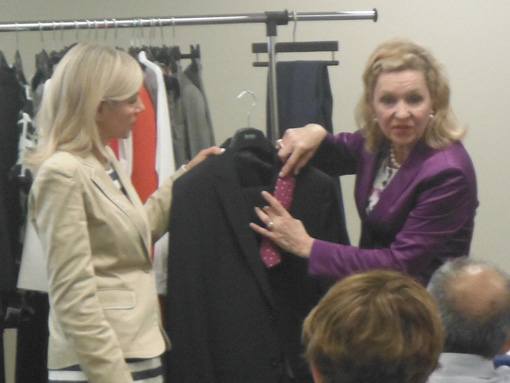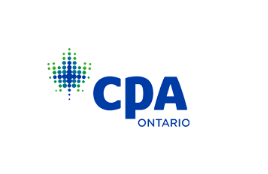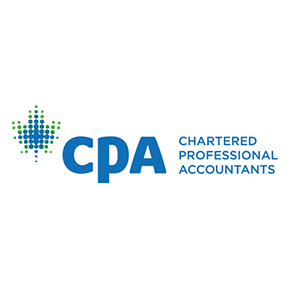Book a speaker for a 1-hour to 90-minute virtual lunch and learn, or keynote for any group size.
A keynote speech sets the tone and focuses the theme of a conference, a retreat, or any large group venue. Now we can offer you that same feeling, but online. Whether in-person or virtually, a confident speaker with a thoughtful and engaging message creates the momentum for the entire event. Our track record of delivering entertaining and informative speeches that inspire personal growth and professional success is nationally recognized.
Given our tech dominated professional world I’ve been heartened with the response to our delivery of an Emotional Intelligence based program called A.C.E.
Credit goes to the executive team who saw the value of rolling this program out across Canada. Credit also goes to the participants for their open appreciation of the value of this kind of professional development. It was good to hear the takeaways: enhanced empathy, rejuvenated curiosity, and increased patience as a few of the emotional elements they will be practicing with their private wealth clients.
With technology mediated communication growing, the greater the imperative to capitalize on our precious face-to-face interactions. It’s our ability to emotionally connect with clients that allows business and referrals to flourish.
Being the host of a professional social event is an exciting and high-profile way to make an impression on clients, peers, industry leaders, your professional community, etc. Be sure to make this impression outstanding by learning the essential requirements of host behaviors: before, during, and after the event. Cover your bases with pre-event planning: everything from logistics to back-up plans for the unexpected. Cultivate an attitude that exudes calm professionalism; learn diplomatic assertion to keep things on track; and, be attentive to the wide variety of participants’ needs, including gender and cultural differences.
When an event runs smoothly, and participants (attendees, speakers, VIPS, etc.) are made to feel comfortable and engaged with meaningful material, the host organization is seen to have pulled off something very special. Make extraordinary a ‘matter of course’ for you and your team when hosting events. This session provides us with the insights and practical strategies to make the most of our hosting opportunities.
Learn the expectations your professional appearance, decorum, body language make when meeting others. Because first impressions online are as important as in person.
It’s more important now to network, we don’t have the same opportunities to meet, attend and grow our client base, and develop professional relationships in the office. The work culture is mostly remote or from home offices during the pandemic. Therefore, it’s imperative to present ourselves, build trust and develop relationships remotely. Learn how to engage with our clients and grow our client base through networking virtually, in-person or in a hybrid situation.
This, do not miss, workshop gets to the heart of what matters most in our daily interactions with colleagues, clients, family and friends… emotion. Our emotional abilities are learned and can be improved with knowledge and practice.
This highly successful seminar brings participants to new insights about themselves, their colleagues, and their customers. Learn to assess the interpersonal style of others, and learn how to maximize your communication approach to enhance effectiveness and persuasiveness.
Being persuasive is clearly one of the more important of the professional attributes. And yet, most professionals miss opportunities to capitalize on the emotional triggers that others use when making decisions. We’ll explore the subtle, yet powerful, persuasive strategies that increase the likelihood of others saying, ‘Yes’ to our compliance requests.
Creating and maintaining a positive emotional connection requires of us high emotional intelligence. Understanding the personalities of others and having the skills to adapt our own behaviors to create comfort is the key interpersonal awareness. Destroy the barriers that keep us apart and learn to emotionally connect with those with whom we interact.
To protect our health, more and more companies are asking employees to work remotely for the foreseeable future. In fact, many organizations are considering a permanent shift to work-from-home for many roles. As a leader, you can no longer evaluate how things are going by walking around the office, checking in on staff and holding impromptu problem-solving meetings. Managing a remote team presents many new challenges ranging from technical requirements to how to stay connected and how to monitor and produce results.
A universal perceptual tendency is to “judge a book by its cover.” We form lasting opinions based on what we see. In fact, over half of the impression you convey to others is based on appearance. The look of credibility, composure and professionalism must accompany the message for an audience or client to accept it. You must be believed to be heard, and we believe what we see.
As we’re well aware, in this heightened globally competitive environment, our personal brand is the differentiator that counts. Clients, colleagues, and business leaders, like the rest of us, use the information about another that’s presented to them to make decisions. Never, ever, miss an opportunity because you failed to meet the expectations of decorum and appearance.
This invaluable seminar is about attaining a professional presence that, in all circumstances, speaks well of you. Learn how your body language, dress and personal style impact the decisions others make of you and your ideas.
Seminar topics include: The Psychology of Perception: The Primacy Impact of Appearance and Decorum, Professional Decorum, and Dining and Cocktail Etiquette.
Are you submissive, aggressive or assertive? Find out where you fit and why assertiveness is the best way to achieve your goals. Learn the words to use, the secrets of body language, and how to interpret other’s behaviour to make positive assertiveness a productive force in your life.
Interactions at work with colleagues, supervisors, and technicians don’t always go as smoothly as we’d like. One’s ability to maintain control in difficult to control situations is the hallmark of excellent communication’s ability. Learn to communicate via email and telephone to promote cooperation and effectively resolve issues that are deemed difficult. Recognize that conflicts will happen in the workplace, our goal therefore is to be at our best when it’s most required of us. Learn to use your voice and rapport building skills to reduce tension, deal with emotion, and make for a more stress-free professional life.
To be at our best when we most need to be requires having the confidence and competence at recognizing potential problems and circumventing them before they escalate. Being assertive in clarifying expectations early in the engagement is essential.
This highly regarded course uncovers the often hidden motivations of why we act the way we do and provides practical, easy to implement strategies to turn negatives into positives and strengthen interpersonal relationships. We’ll explore the typical difficult interactions of your workplace and role play approaches that lead to improved outcomes.
Learn the simple skills of authentic client communication by knowing how to tap into the autobiographical urge of others. Asking the right questions at the right time builds your emotional foundation with existing, or prospective clients. Learn the skills necessary to overcome the obstacles that hold us back from making the invaluable connections that make us memorable. Give others the opportunity to tell their story and realize that money flows in the direction of biographical knowledge.
Appreciate the business case for re-awakening curiosity. Use the “six degrees of separation” phenomenon to find common ground and build lasting relationships. Being authentic in your desire to learn about others you meet is at the heart of competitive advantage. Do what your competition is not doing: dare to be authentically curious and watch business development flourish.
What to wear? What’s the right look? Does this even fit? Is this right for the weather? What you wear, how you look, and how you carry yourself makes a bigger difference than most people realize. Over half of the impression you convey to others is based on appearance. Be sure to convey the appropriate message by presenting your best professional self. The four major image appearance components; hair care, skincare, colour analysis, and wardrobe development are reviewed in depth. Both men and women will learn the “must-knows” and the “never do’s” in this informative, entertaining, and interactive seminar.
Instead of directing your way through interactions that may “win the battle, but lose to war,” learn to maintain an open and positive climate of supportive communication. Create and maintain your reputation as a fair-minded leader who’s not afraid to speak up and not afraid to listen. Learn the importance of seizing the opportunity to change your mind when given good enough reason to do so. Uncover your often hidden motivations about how you lead in order to build on your strengths and minimize your shortcomings.
Learn to achieve your conversational goals with clients by asking the right questions and actively listening to the answers. Use closed and open questions strategically to move client conversations in the right direction. Learn to lead by involving people in a way that galvanizes their support in the short and long term. Practice one of the most important skills of career success: empathy. Learn to see agendas from the client’s perspective to enhance your own understanding, to build your credibility (and likeability), and to enhance your persuasive influence.
Conversing with your clients at the office, a conference, the golf club, or any other venue is always an opportunity to create and strengthen the relationship, or to inadvertently weaken it. It’s the conversations we have that build relationships. Understanding the ingredients of good conversation, knowing what to say and when, directing and redirecting the interaction, and being capable when it becomes difficult are the hallmarks of excellent conversation management. In this entertaining and interactive session, we’ll explore a pragmatic model of interpersonal effectiveness. We’ll increase our self-awareness, capitalize on the perceptual tendencies of others, and appreciate talk that includes and excludes. We’ll delve into the important elements of the conversational process: attitude, attendance and contribution. You’ll be given tips on putting your best foot forward, preventing conversational problems, and repairing interactions that do go astray.
Job applications specify the duties and responsibilities that the work requires. Your resume and cover letter are your response to these requirements. It’s not easy, however, to present your skills, knowledge and characteristics in writing so that a recruiter invites you for an interview – especially when they may have many applications to choose from. This session will provide you with practical and creative tips to increase your success in being selected for an interview.
You provide superior customer service when you can identify your customers’ wants and then exceed them. But the question is; how do you identify your customers’ wants? You do this by watching for, identifying, and maximizing moments of truth. Once you see these windows of opportunity, you look for and analyse your customers’ meta-messages – the real messages they are sending. This is done by using such strategic communication techniques as active questioning and kinesic analysis. When you are able to identify, and then exceed your customers’ needs and/or wants, you have the tools for building and enhancing solid customer relationships. Inevitably though, some customers can be more challenging than others. We’ll also discuss ways to identify potential customer service problems before they turn into conflicts, and identify strategies that can effectively diffuse difficult situations.
The next phase of an excellent customer experience is communication that makes customers feel important and understood. Again, we teach how to communicate in a way that’s effective and supportive no matter what the circumstances. Making sure the customer knows you understand and care creates an open and honest climate, which allows for greater clarity, fewer misunderstanding, and enhanced productivity.
Learn to communicate via email and telephone to promote cooperation and effectively resolve issues that are deemed difficult. Recognize that conflicts will happen in the workplace; our goal, therefore, is to be at our best when it’s most required of us. Learn to use your positive attitude and communication skills to reduce tension, deal with emotion, and make for a more stress-free professional life.
Client negotiations can sometimes leave us feeling frustrated when we feel the client is being unreasonable. Our responses in these situations will have an impact on the present negotiations, engagement with the file, future business, and so on. Dealing with difficult clients requires that we be at our best under pressure. To engage clients with tact, diplomacy, skill, and compassion are the hallmarks of learned communication competence.
Our responses to these clients must be based on professional integrity and assertive communication while still maintaining a supportive communication climate.
We need to explore the underpinnings of unreasonable requests and behaviours in order to understand them and move ahead with supportive professionalism.
In this fun and interactive workshop, you will be given tips on putting your best foot forward with non-verbal communication, effective introductions, table small talk, serving yourself at a buffet, dining demeanour and behaviours that will make you confident in any business social situation. You’ll learn the differences between attending larger group buffet venues and smaller dining situations.
Conversing with your clients at the dinner table is always an opportunity to create and strengthen the relationship, or to inadvertently weaken it. Understanding the ingredients of good conversation, knowing what to say and when, directing and redirecting the interaction, and being capable when it becomes difficult, are the hallmarks of excellent dining etiquette.
Join us for an illuminating program to view with new eyes the essentials of intercultural communication. Find out what the Harvard Business Review cited as the single most significant skill leading to career success. Leave with a new appreciation for generational differences and how we can thrive by tapping into our strengths.
An employee who resides in the top quartile of the employee engagement continuum is three times more likely to succeed than in the bottom quartile. Of publicly traded companies, more engaged organizations outperformed competitors by almost 20%. Employee engagement is one of the most significant determinants of profitability within a company’s control.
Based on the overwhelming research of the U.S. Gallup organization, this program uncovers the mind-set, and the easy to implement skills that lead to higher employee engagement.
We no longer live in a world where the paternalistic relationship between employee and employer exists. The company can no longer offer the traditional motivators of money, promotion, and job security- these are simply too scarce to go around. The new reality must engage through an implicit contract of mutuality where employees learn and grow, and have the confidence to take care of themselves even if the company can’t. The skills of validation, information, and participation are the underpinnings of the engagement premise that work satisfies human needs.
The relatively simple, and as a result consistently underestimated, power of: expectations, resources, opportunities, recognition, encouragement, purpose, progress, etc. have a (to put it mildly) profound impact on customer service, resignations, accidents, productivity, sick days, creativity, sales, and productivity.
Join us as we explore the practical strategies of engaging employees to their potential. Learn to spot the root causes of performance gaps and implement the appropriate interventions. Empower your employees by hearing their voices in a new light. Appreciate the power of a healthy, supportive communication climate in promoting growth and performance.
In today’s professional environment, responsibilities often extend beyond the workday into the evening and beyond the workplace into the social arena. Whether it’s client lunches, networking evenings, or business conferences, most professionals find themselves, from time to time, in the “social business arena.” However, these occasions sometimes trigger insecurities. Where do we sit at a social event? Who gets introduced to whom? What is the best type of handshake? When and how should I present my business card to international clients? How can I make it clear to my client that I intend to pay for the meal? What spoon do I use for my dessert?
We all need to be aware of how others, especially clients, are viewing our behaviour. It’s no secret that clients and colleagues are using the behaviour they see to form their lasting impressions of you. Feel comfortable in conveying your best self by learning the why, when, where, and how of professional protocols. These “rules” of office behaviour are not restrictive; in fact, quite the opposite is true. Knowing what the expectations are and knowing how to meet them provides a foundation of confidence and composure that enables personal expression without worrying: “am I doing this right.”
This service is invaluable to anyone, looking to improve their professional appearance. Credibility, confidence, and being professionally up-to-date are all signalled through appearance. People simply believe what they see. Lynne Mackay will consider your career aspirations and will evaluate your present wardrobe with this in mind. Lynne’s guidance on what to stop wearing and what to start wearing is extensive. Lynne considers everything from hair, make-up, eyewear, jewellery, body type, budget, working conditions, business casual, business professional, etc., to make this time well spent. Past clients have noted that this service ended up saving them money because they made better investment purchases.
How satisfied are you with all the micro-skills that make up executive leadership? Are you sometimes unsure if you are presenting yourself as clearly and professionally as possible? According to the Harvard Business Review, the “ability to communicate” is the single most important requirement for corporate advancement. This unique one-on-one approach allows you to increase your communication confidence by focusing on specific skill development. Through investigative questioning, self-assessment tools, observation, and video recordings, we will create an inventory of your executive skills. Following the assessment, you will receive a detailed written report with recommendations for further skill development. Individual coaching in specific skill areas may then be arranged.
Learn how to expand your listening capabilities and become a more effective communicator. Listening is a learned skill that typically has been ignored as such; consequently, it’s our worst communication skill. Learn to take in a greater amount of information, hear what’s not being said, and build relationships in this powerful session.
Performance management is a key leadership skill, especially right now as many of us continue to work from home. It’s not just about doing an annual or semi-annual review; performance management is an on-going conversation that requires strong communication and coaching skills. This seminar will provide insights and tools on how to start and continue performance management conversations year-round.
Networking is the set of communication skills required to build relationships, inform others, and learn from and about co-workers and clients. Managing the impression you make and maximizing your ‘like-ability’ are the keys to making every networking opportunity consistently profitable. First impressions really are important. The way you greet people can set the tone for the entire interaction that follows. If you make a poor initial impression, you may spend the rest of your time overcoming it. In this fun and interactive workshop, you will be given tips on putting your best foot forward with the right handshake, effective introductions, and presenting and requesting business cards with confidence. You’ll learn the differences between interacting in a large group venue versus the requirements of a more intimate setting. You’ll master the principles of impression management by exploring perceptual tendencies, the ins-and-outs of small talk, and the subtleties of office diplomacy.
With CASL (Canadian Anti-Spam Legislation) firmly in place, companies are reverting back to using the phone to make initial contact with prospective customers. The importance of these calls cannot be understated. Initial contact must inspire interest, pique curiosity, sell credibility, and secure consent to continue the conversation. Sometimes the right person answers, and sometimes they don’t. The ability to chat with gatekeepers, leave voice messages, overcome the response of “not now”, are all skills necessary to succeed in our new CASL environment. Our collective reliance on email has simply stagnated our phone skills. If there was ever a time to resurrect this powerful communication medium… it’s now!
This Lunch and Learn workshop provides participants with the easy to implement skills and scripts to implement in any telephone scenario. We’ll cover exercising good judgment, organizing voice messages, capitalizing on voice, and listening to build a customer connection.
Do your presentations have the impact you intend? Are you unsure what information should be included in, or omitted from, your presentations? Does your delivery grab and hold your audience’s attention? Do your words motivate audiences to action? Your executive image can be either built or undermined by your presentation abilities. This highly successful workshop will enhance your presentation skills and give you the insights you need to project a confident executive image in any speaking circumstance. We’ll cover everything you need to know to deliver any presentation with clarity, persuasiveness, and confidence. This course is designed for professionals with an emphasis on organizing your thoughts and data for maximum impact, developing visuals to enhance your message, and projecting competence through body language and voice.
These are unprecedented and uncertain times. Many of us are looking for ways to stay connected while working remotely. Now more than ever, we need to focus our efforts, have clear goals and implement strategies to use our time effectively. This session will help you avoid procrastination and establish new habits to get the most out of your time.
A universal perceptual tendency is to “judge a book by its cover.” We form lasting opinions based on what we see. In fact, over half of the impression you convey to others is based on appearance. The look of credibility, composure and professionalism must accompany the message for an audience or client to accept it. You must be believed to be heard, and we believe what we see.
Be sure to send the full message by visually presenting your professional credibility. This seminar is about attaining a professional presence that, in all circumstances, speaks well of you. Learn how your body language, dress and personal style impact the decisions others make of you and your ideas.
To be self-confident in professional and social situations is a feeling of freedom- freedom to be you. To be encumbered by concerns of how you look, how you act, what to say, how to say it, etc., constrains your willingness to get involved, to be creative, to be assertive, ultimately to be yourself. This workshop takes the pressure off by giving you the easy to implement strategies of looking your best, conversing with confidence, and dining with grace. Learn how to network for results, listen to create goodwill, and make introductions with flair. Knowing you’re making the right impression with ease and comfort provides you with the psychological and emotional space to be yourself. This workshop is designed by choosing elements from our other full-day workshops to create a customized experience for participants.
In this seminar, we introduce the professional personal brand concept with the purpose of encouraging all workers (receptionists to CEOs) to take control of their own careers. Unlike a personal brand which focuses on self-interested aspects of one’s private life, a professional personal brand is service-minded and is uncompromisingly focused on one’s value to others. Conventional wisdom of impression management asserts the importance of acting and dressing for success, as all of our observed actions shape expectations of future behaviours.
As the lines between professional and personal reputations become blurred, it is important to know how to leverage social media to one’s professional advantage and to avoid the reputation-destroying outcomes of politically incorrect tweets, inapt Facebook postings, and errant instant messages. In this seminar, you will learn to reclaim, recast, or renew your personal brand with a focus on professionalism. A professional personal brand honors the greater good one has accomplished for others and conveys one’s capacity to contribute value to your network of colleagues, clients, and customers.
This highly successful seminar brings participants to new insights about themselves, their colleagues, and their customers. Learn to assess the interpersonal style of others and learn how to maximize your communication approach to enhance effectiveness and persuasiveness.
In today’s multicultural society, successful organizations recognize the importance of a diverse and inclusive workplace to promote employee engagement and wellness and enhance productivity. But a diverse workplace doesn’t necessarily mean an inclusive one. In our communications, we must consider diversity elements such as race, religion, gender identity, mental health, different perspectives and political views. Both managers and employees can contribute to a diverse and inclusive workplace.
Understanding the Basis for Employee Motivation
To maximize employees’ motivation, one must be able to recognize the difference between employees who are highly motivated and those who are not. It is also crucial to know the difference between an unmotivated and an incompetent employee because each scenario may call for different solutions. Finally, managers need to understand that all employees are motivated to satisfy specific needs and that they may differ widely on the particular needs they want to satisfy. Discovering those needs, and therefore being in a better position to motivate employees, depends largely on managers’ active listening skills and their capacity to put themselves in their employees’ shoes.
Managing Employees’ Perceptions of Fairness
One of the biggest “killers” of employee motivation is their perception that they are being treated unfairly. Managers have a huge role to play in managing these perceptions. Doing so well implies that managers must understand the different types of fairness that employees perceive in their workplace and which ones seem particularly important to manage. It is also important to realize that managing to ensure a fair workplace is necessary, but rarely enough to maximize employees’ motivation.
Managing to Maximize Employee Motivation
Motivating with money, even if done fairly, is rarely enough to maximize employees’ motivation. Most employees need to feel autonomous (in control) in how they do their work, that they are developing themselves and are more impactful as a result, and that their work goals contribute to a greater purpose. Providing such experiences to employees is sometimes challenging but can be done in many circumstances, provided that managers take the time to reflect and ask themselves and their employees a few key questions.
How are you being perceived through email, text messaging or voice mail? Learn the simple to implement skills of organizing a one-way transmission to motivate another to pay full attention to your message. The organisational structure (when to say what) assists tremendously with comprehension and retention of even the most complex of ideas. Impress all with your ability to simplify the complex, get to the heart of the matter, and motivate receivers to want to pay attention.
Managing the impression you make and maximizing your ‘like-ability’ are the keys to making every networking opportunity consistently profitable. First impressions really are important. The way you greet people can set the tone for the entire interaction that follows. If you make a poor initial impression, you may spend the rest of your time overcoming it.
Meet and mingle with your colleagues while you learn from the pros. Brush up on the protocols of introductions, business card exchange, conversation management, and more. Learn the secrets to business development through rapport building.
Professional communication is the cornerstone to supervisory success. This workshop, designed for Managers, will focus on the essential communication skills to be an effective communicator. We’ll explore, and practice, the skills of listening with intent, sending messages with clarity and persuasiveness, and supervising for success. Through small group interaction, self-diagnosis, case studies and skill practice, participants will learn the practical communications skills relevant to their workplace reality. Participants will learn to communicate more effectively with all levels of the company’s hierarchy: supervisors, peers, and subordinates.
Anyone who works at a desk knows the importance of good writing skills. This course is just what you need to write clear, concise business letters, memos, emails and reports. Professionally relevant activities and basic do’s and don’ts will have you writing like a pro as you discover the secrets to well-written sentences and learn how to quickly organize your thoughts.
Too much writing and too little time is the recurring challenge of the busy professional. Learning how to focus your main message and bring it to your readers’ immediate attention is key to fast and effective business writing.





